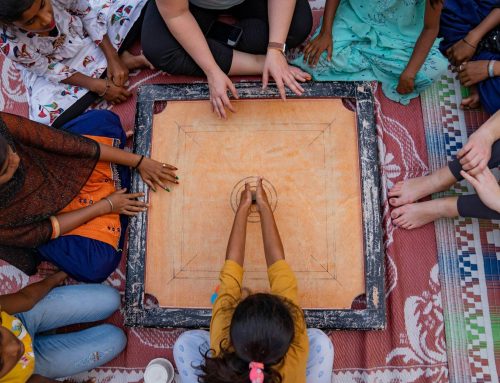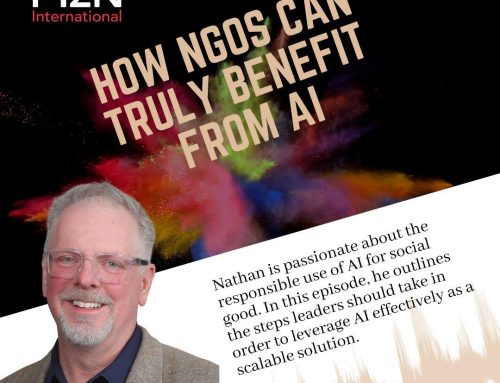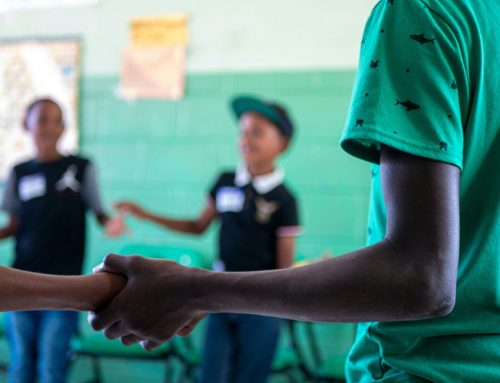Top health sector Funders 2023
There is some good news about health. According to the World Health Organization (World Health Statistics 2022), over the past two decades, global health has improved, with life expectancy increasing from 66.8 to 73.3 years, and healthy life expectancy (years of good health) rising from 58.3 to 63.7 years. But the progress is not evenly distributed. Health disparities persist, with a 10-year gap in life expectancy and healthy life expectancy between low-income and high-income countries in 2019, despite gains of 11 and 10 years, respectively, since 2000.
Still, maternal mortality has fallen by 40%, and child mortality by 60% in the last 20 years. Investments in disease programs have helped, but more deaths are now due to noncommunicable diseases (NCDs) like heart disease and diabetes, increasing from 61% in 2000 to almost 74% in 2019.
Despite these improvements, lower-income countries continue to grapple with communicable diseases, which still account for nearly half of all deaths in these regions. These countries bear the brunt of diseases such as TB, HIV, malaria, neglected tropical diseases, and hepatitis B. Despite the ongoing progress at the current rate, it remains unlikely that several crucial health goals, including reducing premature deaths from noncommunicable diseases and controlling the spread of TB, malaria, and HIV, will be achieved by 2030, as outlined in the Sustainable Development Goals.
We need to intensify our efforts to ensure better health outcomes for people worldwide.
Funding in the healthcare sector is the basis to achieve the health related SDGs, which amongst others, aims to eradicate epidemics like AIDS, tuberculosis, and malaria by 2030. This commitment is driven by both a moral duty to ensure equitable healthcare access and the recognition that health crises in one region can pose global threats. Additionally, investing in healthcare not only enhances the well-being of populations but also fuels economic growth, leading to more productive societies and advancing broader development objectives such as poverty reduction and gender equality.
So what funding is out there? Here are the top 10 Donors in the Health sector.
1. The Global Fund (Strategy 2023-2025)

The Global Fund is a global initiative dedicated to defeating HIV, tuberculosis, and malaria and promoting a healthier, fairer, and more secure future worldwide. It allocates and mobilizes $4 billion annually to combat these deadly diseases, address underlying injustices, and strengthen healthcare systems in over 100 countries. Government contributions are crucial for curbing these epidemics and reinforcing health systems, with more than 80 countries committing funds to the Global Fund. Its funding primarily comes from public resources. The top 10 government donors as of the end of 2022 are the United States, France, the United Kingdom, Germany, Japan, the European Commission, Canada, Sweden, Italy, and the Netherlands. Operating on a three-year funding cycle, the Global Fund provides predictability in the fight against these diseases and healthcare system resilience. It contributes 30% of all international funding for HIV programs and has invested $24.2 billion in HIV/AIDS prevention and treatment initiatives, along with $5 billion in TB/HIV programs until June 2022.
More information about the grants is available here.
2. USAID Global Health:

For over 50 years, USAID’s global health efforts have saved lives, protected vulnerable populations, and bolstered global stability, benefiting the United States’ security and prosperity. These initiatives are grounded in strengthening healthcare systems and fostering innovation, with three key priorities:
Preventing Child and Maternal Deaths: Targeting child and maternal mortality through focused interventions.
Controlling the HIV/AIDS Epidemic: Managing and mitigating the impact of HIV/AIDS.
Combating Infectious Diseases: Addressing various infectious diseases to enhance global health security.
To search for grants please visit the link.
3. The Bill and Melinda Gates Foundation:

The Bill and Melinda Gates Foundation is actively engaged in numerous vital areas of global health, including Discovery & Translational Sciences, Enteric and Diarrheal Diseases, HIV, Innovative Technology Solutions, Institute for Disease Modeling, Integrated Development, Malaria, Neglected Tropical Diseases, Pneumonia, Tuberculosis, and Vaccine Development and Surveillance. This broad coverage underscores their commitment to addressing a wide range of global health challenges, from infectious diseases to technological innovation and vaccine development.
More information about the open grant opportunities are available here.
To receive more information about the foundation please visit the link.
4. UNITAID:

Unitaid, a global health agency, focuses on innovative, cost-effective disease prevention, diagnosis, and treatment in low- and middle-income countries. They fund initiatives for diseases like HIV/AIDS, malaria, and tuberculosis, along with addressing co-infections like cervical cancer and hepatitis C related to HIV. Unitaid also works on fever management. Established in 2006, Unitaid has received approximately $3 billion from contributors, including France, the UK, Norway, the Bill & Melinda Gates Foundation, Brazil, Spain, South Korea, and Chile. Unitaid provides short-term financial grants to health partners to maximize impact and has played a crucial role in developing essential medicines and tools for global health responses through innovative funding and collaborations.
Calls for funding are available here.
To get more information about the organization please visit the website.
5. Open Society Foundation:

The Open Society Foundations (OSF) prioritize building enduring, trust-based relationships with the entities they support. This integral approach involves comprehending these organizations’ health, effectiveness, strengths, and challenges as they pursue their missions.
OSF is a leading force foundation in the global fight against HIV/AIDS, tuberculosis (TB), and sexually transmitted infections (STIs) across various levels—global, regional, national, and local. They collaborate closely with Soros foundations and partner with bilateral and multilateral agencies to drive policy changes.
Consistently, OSF extends grants and fellowships to both organizations and individuals who share their core values and exhibit a clear vision for fostering lasting social transformations.
To get more information about the calls for grants please visit the link.
For more information about the website please visit the link.
6. Gilead Foundation:

The Gilead Foundation seeds innovative approaches to complex social issues, with an emphasis on achieving health equity through educational equity. The foundation promotes health equity through education by focusing on systems change and community connection for underserved students in Grades 6 through 12. The Gilead Foundation’s Zeroing In™: Ending the HIV Epidemic (EHE) grant program is dedicated to assisting organizations in their efforts to enhance the overall health and well-being of communities that have been heavily affected by both HIV and the COVID-19 pandemic. They also have some programs focusing on hepatitis C.
Gilead Provides grants up to $250,000.
For more information about the grant please visit the website.
7. The OPEC fund for International Development

The OPEC Fund for International Development is a multilateral institution founded in 1976 by OPEC member states. It is dedicated to driving positive socio-economic change in low- and middle-income countries. What sets it apart is its global mandate, offering financial support from member to non-member countries. It focuses on various health initiatives, tackling high-burden diseases, including HIV/AIDS, tuberculosis, malaria, neglected tropical diseases, as well as non-communicable diseases like cancer and diabetes.
For information about the OPEC Fund for health please visit their website.
To receive the open calls for proposals please visit the link & this link.
8. King Baudouin Foundation (KBF)

The healthcare sector is in constant development and faces numerous challenges, including technological advances, the human being’s place in care, and social inequality. The King Baudouin Foundation has been active in this sector for many years, investing in physical as well as mental health and in the quality of care.
The Foundation supports scientific research and develops new opportunities so that everyone can play a part in his or her health and be involved in the use of personal data. These activities are complementary to those of government bodies and benefit from support, via the Foundation, of numerous philanthropists.
For the information regarding calls for project please visit the link.
To know more about the foundation please visit the website.
9. Tropical Health & Education Trust (THET)

The foundation offers comprehensive grant management services to government, private sector, NGO, and donor partners with the aim of enhancing global health systems.
With over three decades of experience collaborating closely with national governments in the UK, Africa, and Asia, THET has earned a commendable reputation as a strategic grant manager, dedicated to maximizing the impact of grants on the well-being of patients both in the UK and worldwide. Thus far, the foundation has overseen more than 300 grants through various partnerships, including with the Foreign, Commonwealth and Development Office (formerly the Department for International Development), the Department of Health and Social Care, and Johnson & Johnson. These grants have ranged in value from £3,000 to £1.5 million.
To get more information about the calls for application please visit the link.
To know more about the foundation please visit their website.
10. Research and Training in Tropical Diseases (TDR)

TDR, the special programme for research and training in tropical diseases, is a global program of scientific collaboration that helps facilitate, support, and influence efforts to combat diseases of poverty. It is hosted at the World Health Organization (WHO) and is sponsored by the United Nations Children’s Fund (UNICEF), the United Nations Development Programme (UNDP), the World Bank, and WHO. Their mission is to support effective and innovative global health research by strengthening the research capacity of disease-affected countries and promoting the translation of evidence into interventions that reduce the burden of infectious diseases and build resilience in the most vulnerable populations.
To get more information about the grant information is available here.
To get more information about the organization please visit the website.





